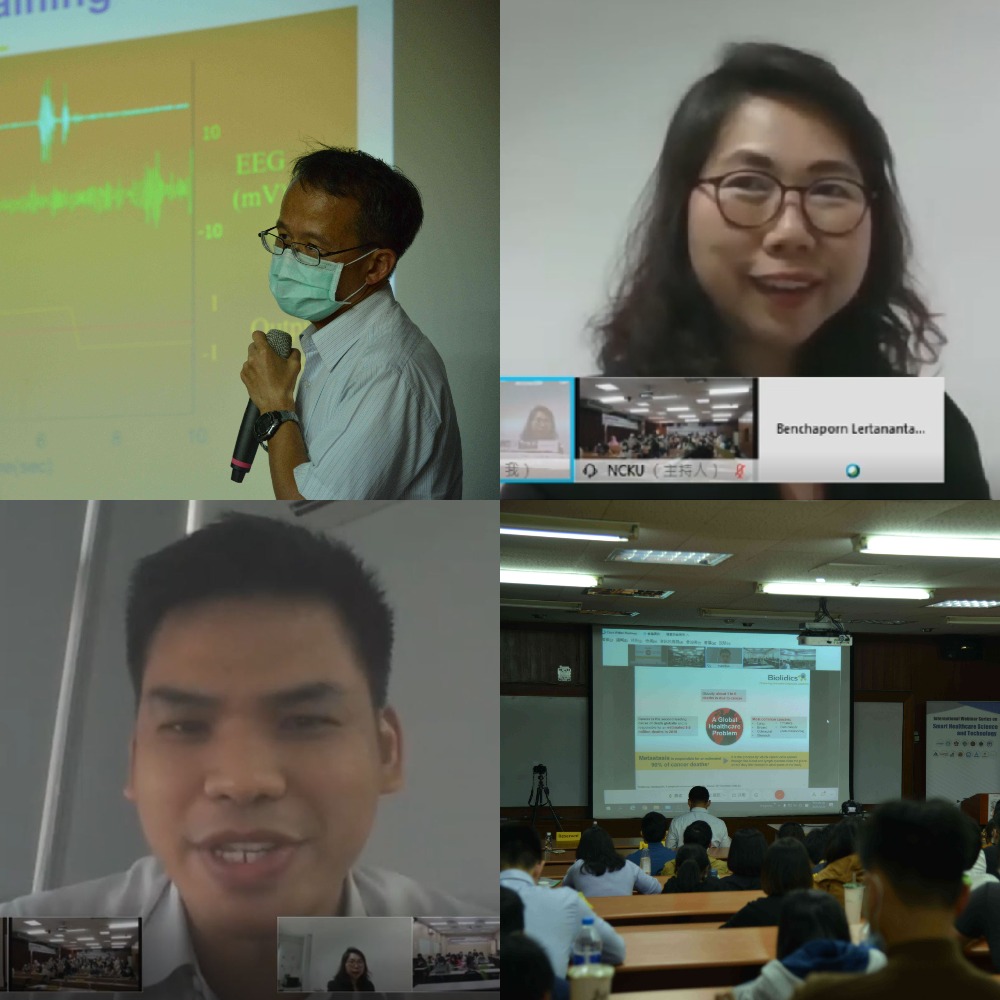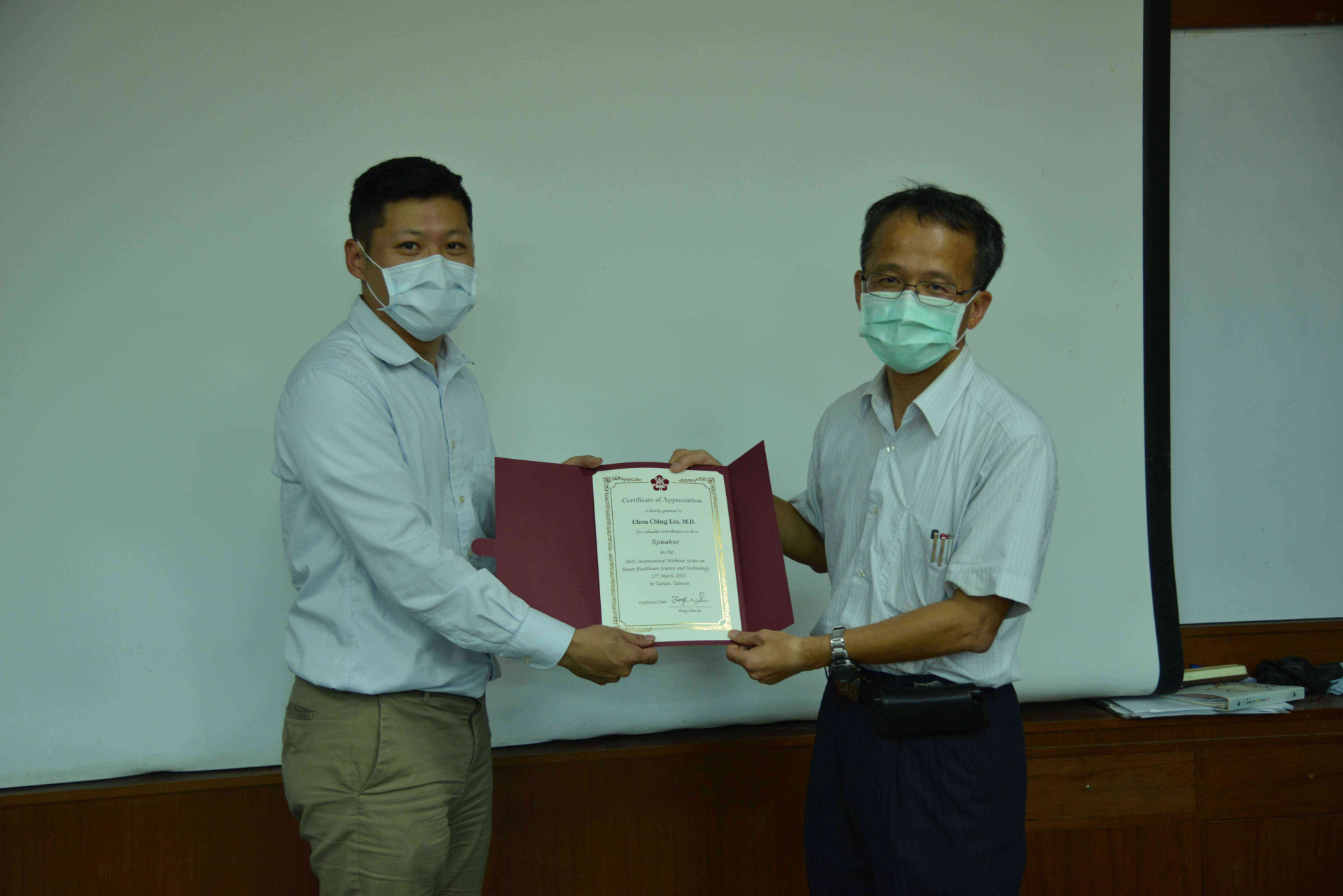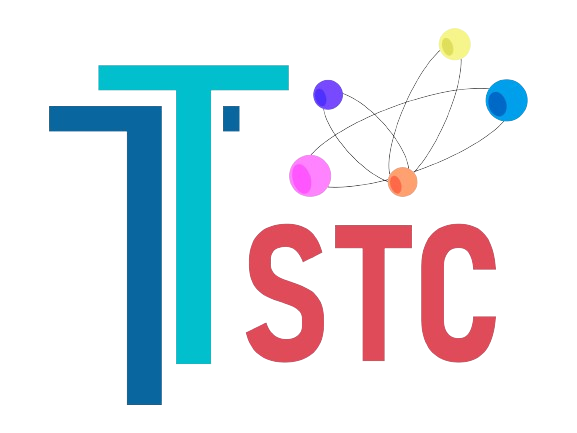Webinar | Biosensor Innovation
International Webinar Series on Smart Healthcare Science and Technology targeted on exchanging up-to-date smart healthcare innovation of Asian Pacific region in the post-epidemic era. On March 22, the webinar series brought the topic “Biosensor Innovation" and had Asst. Prof. Ting-Yuan Tu, an expert in Cell Mechanics and BioSystems, as the moderator. The keynote speakers included Asst. Prof. Benchaporn Lertanantawong of Biomedical Engineering in Mahidol University from Thailand, Dr. Man Chun Leong the interim CEO of Biolidics Ltd. from Singapore, as well as Prof. Chou-Ching Lin M.D. of Neurology in National Cheng Kung University from Taiwan.

Pic 1 : Taiwan, Thailand and Singapore academics and experts shared biosensors innovations
Most countries around the world are struggling with COVID-19 pandemic and to a greater extent has increased the needs and awareness for epidemic prevention. Accordingly, global communities prioritize the integration of medicine and technology, and pay more attention to smart healthcare and precision medicine, hoping to provide a better medical and care environment, turning this global crisis into opportunities. When it comes to popular smart technologies such as the Internet of Things (IoT), big data, and 5G mobile network, robust and versatile sensors are indispensable units to collect huge amounts of data and enable further health analytics. Especially, biosensor plays an important role with its potential in epidemic prevention and related medical applications, as it can be widely used to collect abundant real-time health information and make connections with rear end diagnostics or medical care in a short time.
Asst. Prof. Benchaporn Lertanantawong shared application of electrochemical DNA sensors. Her research focused mainly on nanotechnology and electrochemical sensing application. “DNA biosensors integrate plenty of data from diversified scientific areas, and can provide sustainable and reliable predictive analysis for virus detection, genetic screening, and disease prevention." mentioned Asst. Prof. Benchaporn. Prof.Chou-Ching Lin, MD specializes in brain-machine interface and neural network modelling of natural intelligence and artificial intelligence (AI). He introduced a brain-machine interface designed for quadriplegic patients, enabling them to control the appliances in their environment without moving limbs.

Pic 2: Prof.Chou-Ching Lin, MD introduced a brain-machine interface for quadriplegic patients.
“The pandemic has expanded our needs for rapid tests and manage our health. The development of precision medicine not only has our medical system progressed, but also more personalized, offering better support and care to people of different needs in society.” said Asst Prof. Ting-Yuan Tu to conclude the webinar. Taiwan Center for Smart Healthcare Science and Technology in Thailand invited smart technology experts from Taiwan, Thailand, Southeast and Southern Asian regions, to share latest knowledge and built international joint research teams, hoping to enhance global partnership between Taiwan and these countries by technology exchange and field test collaboration.

